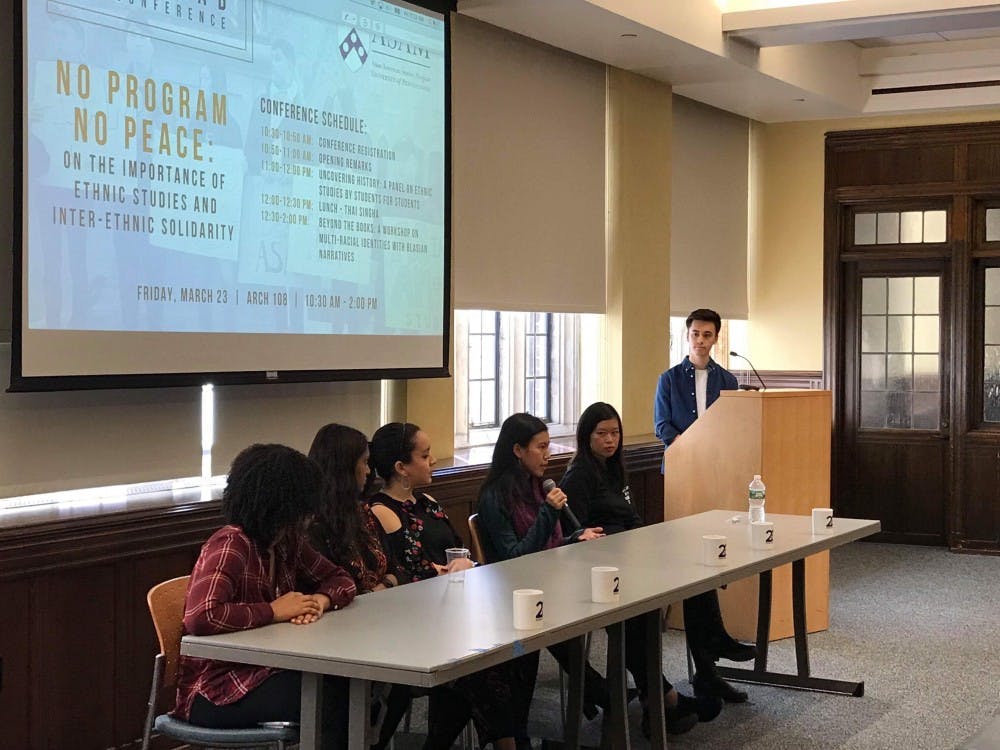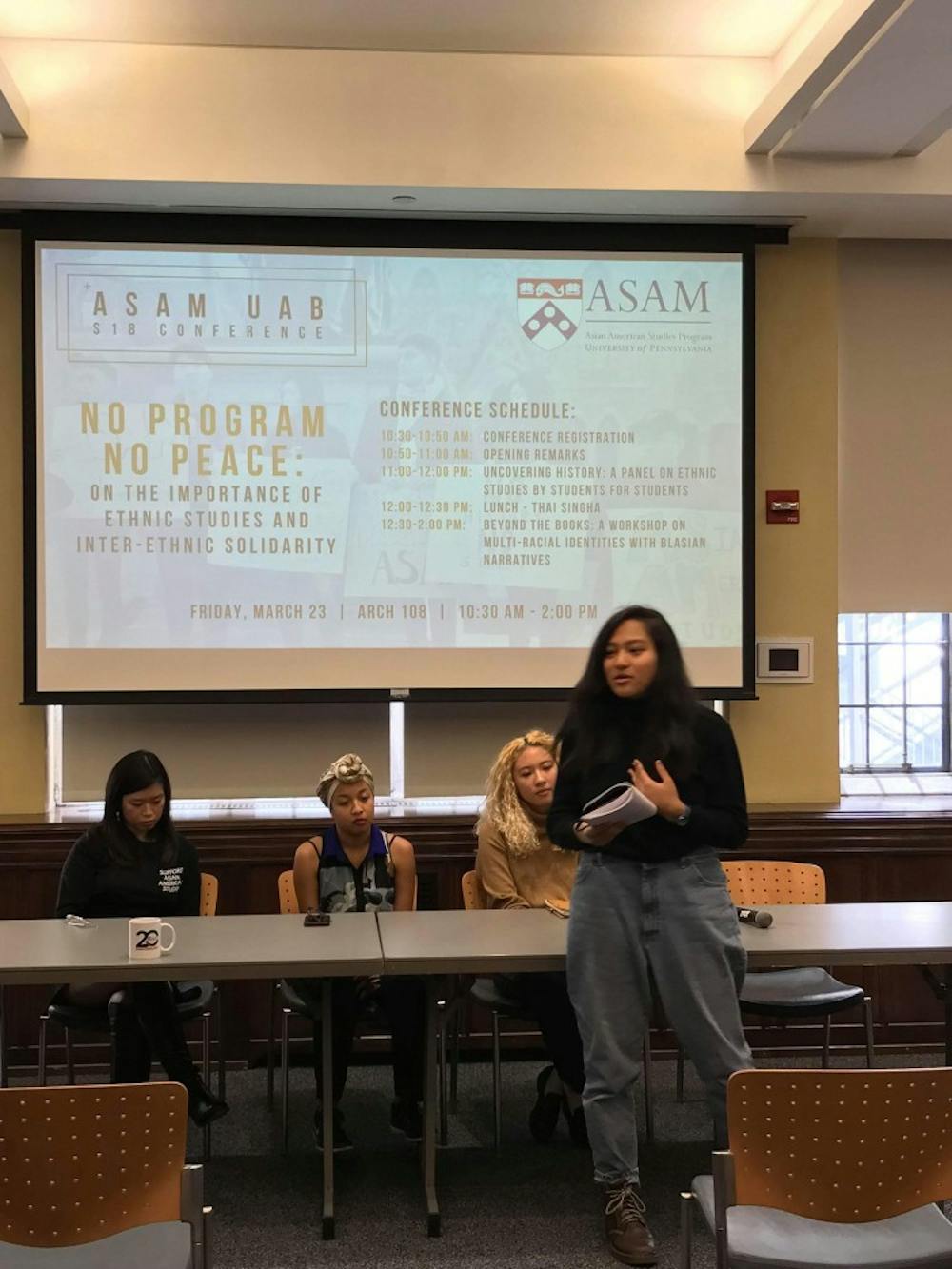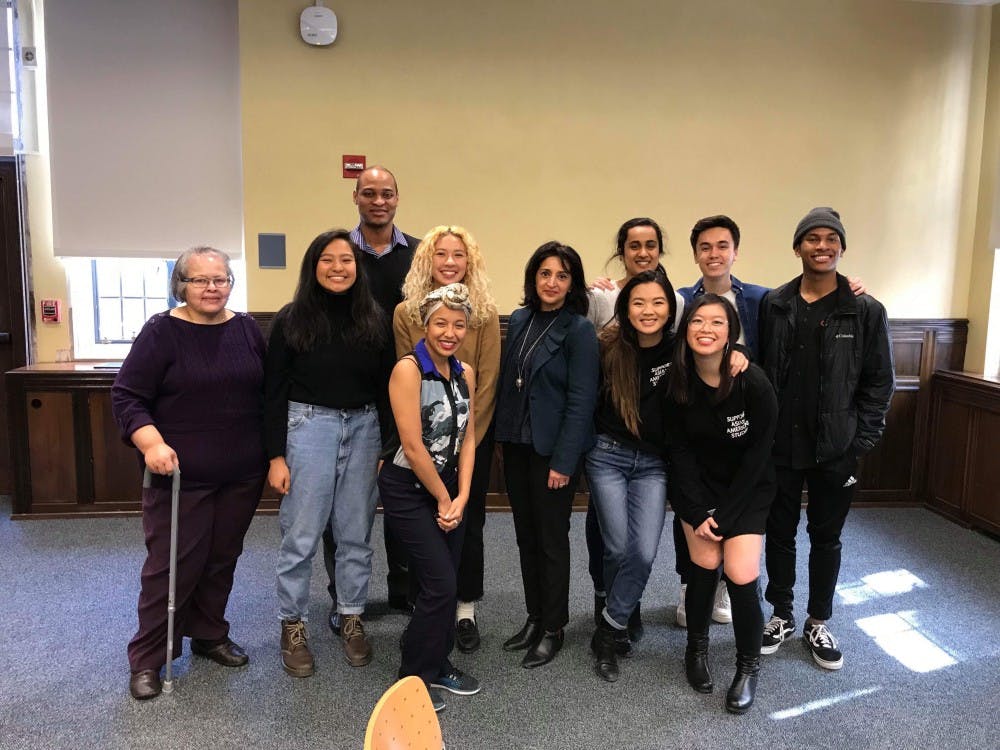
Photo from Trinh Nguyen
The Asian American Studies Program has struggled to keep itself alive since longtime former Director Grace Kao left for Yale University, but activists in the fight for ASAM's survival have now expanded their reach to include other ethnic studies programs.
“As we struggled to push the administration for more hires and resources, we came to realize this wasn't just our fight," said College senior Lindsey Lui, chair of the ASAM Undergraduate Advisory Board. "It was a fight for all ethnic studies programs.”
Lui and other ASAM students held an ethnic studies conference on campus to “re-contextualize” American history on Friday.
The conference, entitled “No Program No Peace: On the Importance of Ethnic Studies and Inter-Ethnic Solidarity," was organized by the ASAM UAB to “bridge different ethnic studies programs and build interracial solidarity.”
For over a year, ASAM faculty and students have been fighting against the lack of administrative support. Through protests and petitions, they reiterated that the program could not sustain itself in the future without a new director, sufficient funding, or physical space.

It featured a panel on ethnic studies with students studying Africana Studies, Gender, Sexuality, and Women’s Studies, and Latin American and Latina Studies, as well as visiting students from Swarthmore College. It also involved a film screening, performance, and a workshop on multi-racial identities led by Blasian Narratives.
Student panelists discussed their experiences as ethnic minority students and how their ethnic group’s history is typically misrepresented or excluded in textbooks. They also suggested ways to continue developing ethnic studies programs in universities.
College senior Kassidy Jones, who was a panelist representing Africana Studies, reflected on how taking classes in Africana Studies made her feel more understood than in other classes.
“These classes provided me with the tools to articulate the experiences I’ve had as a black woman all my life,” Jones said.
Reflecting on the importance of ethnic studies programs, the panelists emphasized the need for solidarity and understanding between minority groups.
“All ethnic studies programs are born out of the same movement that said ‘if we can’t see ourselves represented in our academia, we will not rest until that happens,'” College junior Luke Kertcher, ASAM UAB member and one of the main organizers of the conference, said.
Sonya Chen, a senior at Swarthmore who was one of the panelists for the conference, said at Swarthmore, conversations about Asian-American history had to occur mainly outside of the classroom because the college doesn’t offer an institutionalized Asian American Studies Program.

“I think it’s really amazing to have people from different ethnic studies programs and across schools speak,” Chen said. “Ethnic studies itself is interdisciplinary, so in order for each subfield to grow, ethnic studies as a whole has to grow.”
In the afternoon, Blasian Narratives, an off-campus multimedia African Asian group, screened its documentary and performed some of its pieces. A Q&A session about multiracial identities followed the group's performance.
“There isn’t much talk about multiracial identity even within those involved in ethnic studies. It’s definitely an underdeveloped field of study with little literature out there,” Lui explained.
Faculty and students from various ethnic studies programs at Penn, as well as those who are interested in learning more about them, attended the conference.
“As a freshman, I haven’t been really exposed to the ethnic studies programs Penn offers, so it was really interesting to hear the panelists talk about their programs and how they impacted their lives,” College freshman Sarah Kim said.
College freshman Su Ly said the conference shed light on the “untold histories” of minorities in America.
“There is so much that we don’t know about what has happened to different ethnic groups in the past and how it influenced mainstream American culture,” Ly said. “The conference definitely showed how important it is to keep these programs alive.”
The Daily Pennsylvanian is an independent, student-run newspaper. Please consider making a donation to support the coverage that shapes the University. Your generosity ensures a future of strong journalism at Penn.
Donate






